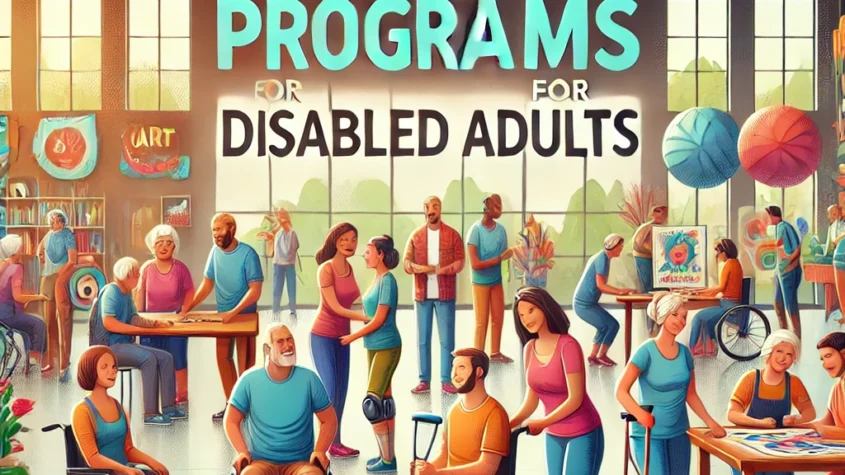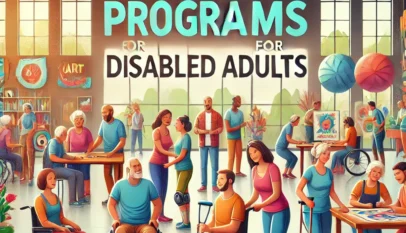
Finding engaging activities for disabled adults can significantly enhance their quality of life and social interaction. Many adaptive options exist that cater to various interests, ensuring everyone can participate comfortably and enjoyably. This variety not only fosters inclusivity but also encourages personal growth and community involvement.
Whether it’s exploring arts and crafts, participating in adaptive sports, or joining social clubs, there are countless ways to nurture hobbies and skills. Accessibility has improved in many areas, making it easier for disabled adults to engage in physical, creative, and intellectual pursuits they love.
Exploring these activities can open doors to new friendships and experiences, enriching lives in meaningful ways. Engaging in enjoyable pastimes promotes mental well-being and helps build a supportive community.
Benefits of Activities for Disabled Adults
Engaging in activities tailored for disabled adults presents multifaceted benefits. These activities cater not only to physical needs but also enhance mental and emotional well-being. Each aspect fosters a more fulfilling lifestyle and promotes a positive sense of belonging.
Promoting Mental Health
Participating in structured activities can significantly uplift mental health. Engaging in hobbies or group activities reduces feelings of isolation and anxiety. Activities tailored for individuals with disabilities often foster a sense of purpose and achievement, which can combat depression.
Creative outlets such as art, music, or crafts allow for self-expression. This can lead to improved self-awareness and emotional release. Programs that integrate mindfulness or relaxation techniques also contribute positively, creating a calming effect on individuals.
Enhancing Physical Fitness
Physical activities are crucial for maintaining health and mobility. Adapted exercises, such as chair yoga or water aerobics, provide safe ways to improve strength and flexibility. Participating in these activities lowers the risk of obesity and associated health issues.
Structured exercise programs also promote cardiovascular health. They can be designed to meet specific needs, accommodating various levels of ability. Consistent physical engagement leads to better mobility, stamina, and overall physical well-being.
Social Interaction and Community Involvement
Activities create opportunities for social engagement, breaking down barriers that lead to isolation. Group settings encourage individuals to connect and build friendships with others who share similar experiences. Engaging in community events fosters a sense of belonging.
Volunteer opportunities further enhance social interaction. Participating in community service allows disabled adults to contribute, gain new skills, and strengthen their social network. This involvement fosters community integration and enhances overall quality of life.
Fostering Independence and Self-Esteem
Taking part in various activities promotes independence and self-sufficiency. Learning new skills, whether in cooking, gardening, or technology, empowers individuals. This fosters a sense of achievement and can lead to greater autonomy in daily life.
Increased self-esteem often results from mastering new skills or contributing to group efforts. When disabled adults see their impact in activities, it boosts their confidence. This newfound self-assurance translates into other areas of their lives, promoting overall personal growth.
Types of Accessible Activities
Accessible activities play a crucial role in enhancing social interaction, skill development, and overall well-being for disabled adults. Diverse options exist that cater to various interests and abilities.
Creative Arts and Crafts
Creative pursuits offer a therapeutic outlet for expression. Activities such as painting, pottery, and knitting can be adapted to suit varying abilities.
For instance, adaptive art supplies like thicker brushes and easy-grip tools can help individuals with limited mobility participate fully. Workshops designed specifically for disabled adults often focus on inclusivity, allowing participants to explore their creativity in a supportive environment.
Crafting can also foster social connections, as group projects encourage collaboration and communication. The art created can provide a sense of accomplishment, boosting self-esteem and encouraging further exploration of talents.
Adaptive Sports and Recreation
Adaptive sports provide opportunities for physical activity and social engagement. Options include wheelchair basketball, adaptive rowing, and inclusive dance classes.
Organizations often provide specially designed equipment, like handcycles and adaptive skis, which enable participation regardless of mobility challenges.
Events and local leagues help promote community involvement and competition. Not only do these activities improve physical health, but they also foster teamwork and a sense of belonging.
Participation in sports can lead to personal growth and increased confidence, making it a valuable pursuit for disabled adults of all skill levels.
Educational Workshops and Events
Educational activities enhance personal development and skill acquisition. Workshops can include topics like computer skills, financial literacy, or job training.
Many organizations offer programs tailored to the needs of disabled adults, often incorporating assistive technologies. This inclusivity ensures that everyone can access the information presented.
Interactive workshops allow participants to engage with instructors and peers, promoting a learning community. Networking during these events can also open doors to job opportunities and further education.
The focus on practical skills equips disabled adults with valuable tools for independent living and employment.
Assistive Technology in Entertainment
Assistive technology significantly enhances entertainment options for disabled adults. Devices such as screen readers, adapted gaming controllers, and voice recognition software make various forms of entertainment more accessible.
Movie theaters and television broadcasting often provide audio descriptions and closed captioning, allowing individuals with visual or hearing impairments to enjoy content fully.
Video games are increasingly inclusive, featuring adaptive options that allow for personalized gaming experiences. This technological advancement promotes engagement and social interaction among peers.
Moreover, online platforms often host virtual events and experiences, broadening the entertainment choices available to disabled adults. This accessibility can elevate leisure time and create community connections.
Copper Mining Stock: Insights and Trends for Investors
Investors are increasingly looking towards copper mining stocks as a strategic opportunity…










